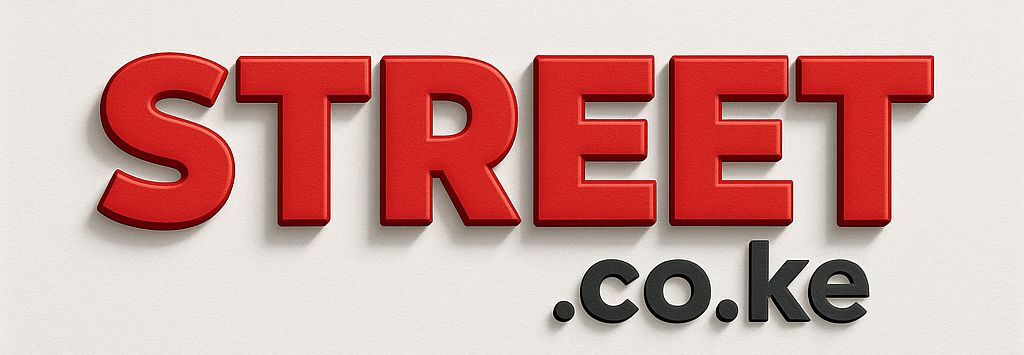The Truth About Cholesterol: Debunking Myths and Understanding the Science
By Street Staff Writer | August 2, 2025
Cholesterol has long been cast as a dietary villain, blamed for heart attacks and strokes, with many people shunning eggs, butter, and red meat in fear of spiking their levels. But recent science is reshaping the narrative, revealing that cholesterol is far more complex than once thought. Here’s the truth about cholesterol—what it is, how it works, and why it’s not the enemy you might think.
What Is Cholesterol, Really?
Cholesterol is a waxy, fat-like substance found in every cell of your body. It’s essential for building cell membranes, producing hormones like estrogen and testosterone, and creating vitamin D. Your liver makes about 80% of the cholesterol you need, while the rest comes from foods like meat, dairy, and eggs. Contrary to popular belief, dietary cholesterol has a minimal impact on blood cholesterol for most people, as the body tightly regulates its levels.
There are two main types of cholesterol carriers in the blood: low-density lipoprotein (LDL), often called “bad” cholesterol, and high-density lipoprotein (HDL), dubbed “good” cholesterol. LDL transports cholesterol to tissues, while HDL sweeps excess cholesterol back to the liver for removal. The balance between these two, along with triglycerides (another type of fat), shapes your heart health more than total cholesterol alone.
Myth 1: All Cholesterol Is Bad
For decades, cholesterol was demonized, with guidelines urging people to keep levels as low as possible. But not all cholesterol is harmful. HDL cholesterol, for instance, protects against heart disease by clearing artery-clogging plaques. Studies, like those published in The Lancet in 2017, show that very low cholesterol levels can be linked to higher risks of stroke and cognitive decline, suggesting a U-shaped curve where both extremes—too high or too low—can pose risks.
LDL cholesterol isn’t inherently “bad” either. It’s the size and density of LDL particles that matter. Small, dense LDL particles are more likely to contribute to plaque buildup, while large, fluffy LDL particles are less harmful. Standard blood tests don’t distinguish between these subtypes, which is why advanced lipid panels or tests for inflammation markers like C-reactive protein (CRP) can provide a clearer picture.
Myth 2: Eating Cholesterol Spikes Your Levels
The idea that eating cholesterol-rich foods like eggs or shrimp directly raises blood cholesterol has been largely debunked. A 2015 meta-analysis in The American Journal of Clinical Nutrition found that dietary cholesterol has a negligible effect on blood cholesterol for most people. The U.S. Dietary Guidelines dropped their 300 mg daily cholesterol limit in 2015, reflecting this shift. Instead, trans fats (found in processed foods) and excessive refined sugars are bigger culprits for driving unhealthy lipid profiles.
That said, about 25% of people are “hyper-responders,” meaning their cholesterol levels are more sensitive to dietary intake. For them, moderation in cholesterol-rich foods might still be wise, but even then, the impact is often small compared to genetic or lifestyle factors.
Myth 3: Statins Are Always the Answer
Statins, drugs that lower LDL cholesterol, are among the most prescribed medications worldwide. They can reduce heart attack risk in high-risk groups, like those with existing heart disease. But their blanket use for everyone with “high” cholesterol is controversial. A 2020 study in BMJ questioned the benefits of statins for low-risk individuals, noting side effects like muscle pain, liver issues, and increased diabetes risk.
Lifestyle changes often rival or outperform statins for many. Exercise, for instance, boosts HDL and lowers triglycerides, while diets rich in fiber (think oats, beans, and vegetables) and healthy fats (like olive oil, nuts, and avocados) improve lipid profiles. Weight loss, even modest, can also shift cholesterol ratios favorably. Posts on X echo this sentiment, with users sharing how plant-based diets or regular exercise helped them avoid medication.
The Real Risk Factors
Heart disease risk isn’t just about cholesterol. Inflammation, driven by smoking, stress, poor sleep, or a diet high in processed carbs, plays a starring role in artery damage. High blood pressure, obesity, and insulin resistance (often tied to type 2 diabetes) are also major players. A 2023 study in Nature Reviews Cardiology emphasized that focusing solely on LDL misses these broader drivers, advocating for a holistic approach to heart health.
Genetics also matter. Conditions like familial hypercholesterolemia (FH), which affects about 1 in 250 people, cause dangerously high LDL levels from birth and require aggressive treatment. If your cholesterol is sky-high despite a healthy lifestyle, genetic testing might uncover such issues.
What You Can Do
- Get the Right Tests: Beyond standard lipid panels, ask for tests like apoB (a marker of LDL particle number) or Lp(a), a genetic risk factor. These give a fuller picture than total cholesterol alone.
- Focus on Food Quality: Swap processed carbs and trans fats for whole foods—vegetables, fruits, nuts, fish, and lean proteins. The Mediterranean diet consistently ranks as heart-friendly.
- Move Your Body: Just 150 minutes of moderate exercise weekly (like brisk walking) can boost HDL and lower LDL and triglycerides.
- Manage Stress and Sleep: Chronic stress and poor sleep raise inflammation and disrupt lipid metabolism. Mindfulness or better sleep hygiene can help.
- Know Your Risks: If you have a family history of heart disease or other risk factors, work with a doctor to tailor your approach.
The Bottom Line
Cholesterol isn’t the heart-disease bogeyman it was once made out to be. It’s a vital substance, and its role in health depends on balance, particle types, and broader lifestyle factors. Rather than obsessing over a single number, aim for a heart-healthy lifestyle that addresses inflammation, diet, and exercise. As science evolves, so should our approach to cholesterol—less fear, more facts.
Got questions about cholesterol or heart health? Drop us a line at info@street.co.ke

